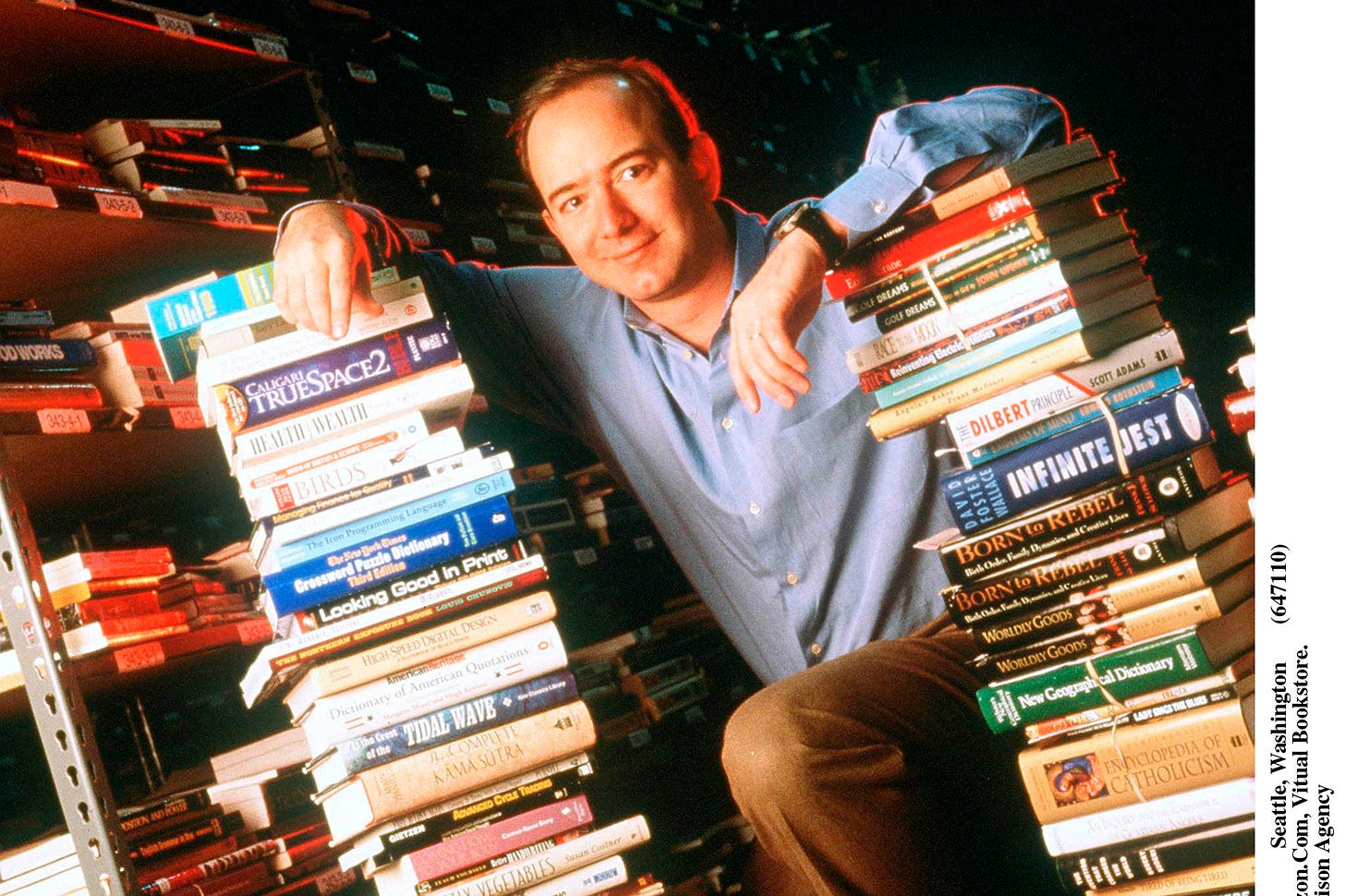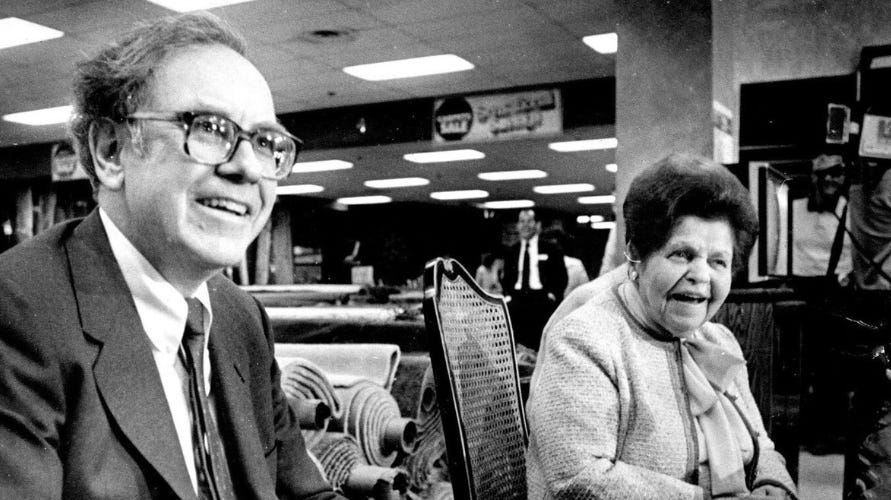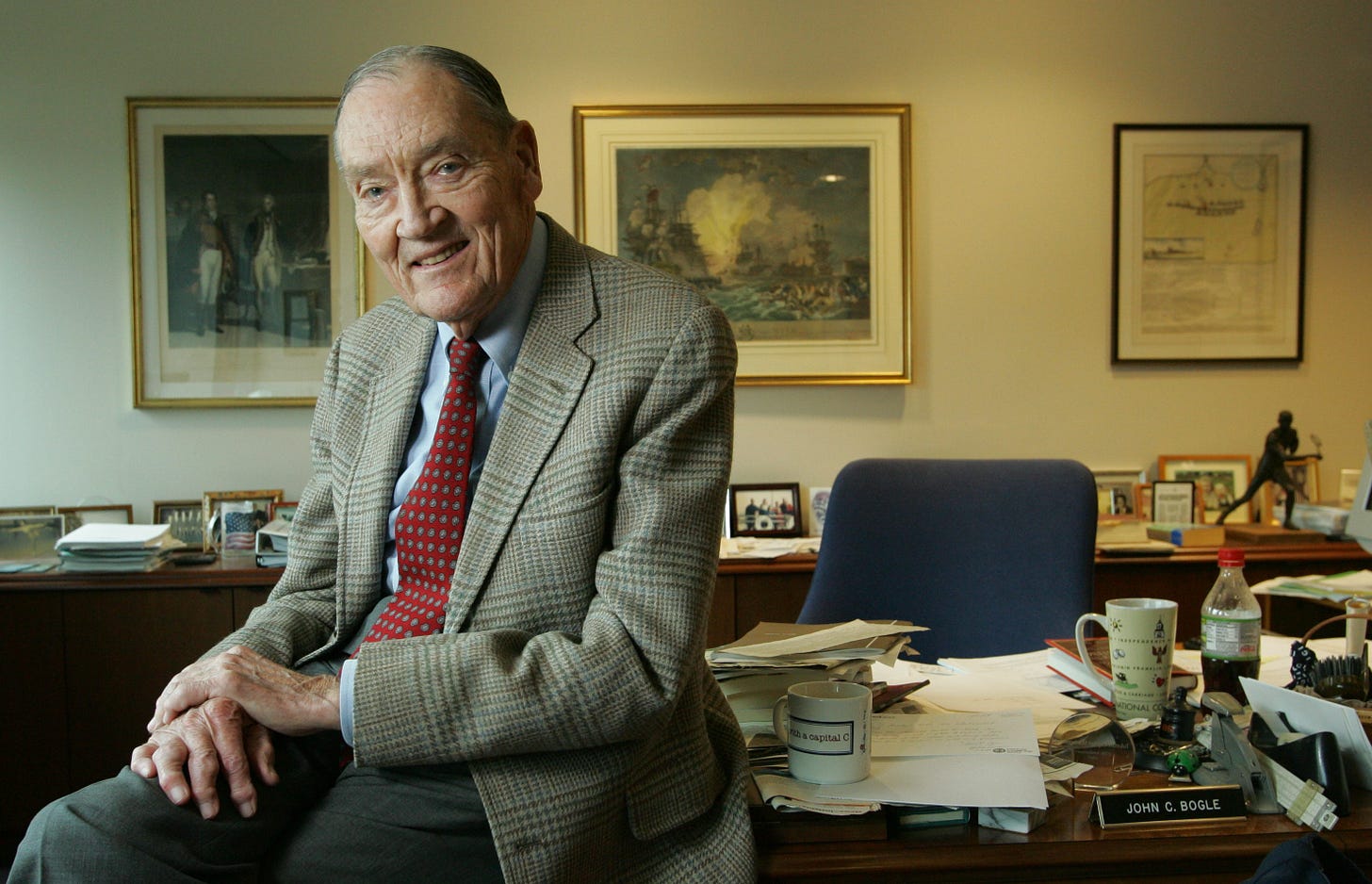Over the last few weeks, I’ve had several conversations with other entrepreneurs and investors about what gave them 'the spark' to make some of their best bets. We had to define what this spark really meant.
For each person, it could mean something different, but the one common denominator in what defines this spark is that it is something within our perceived reality that we think might be broken. It’s something you notice that is important to you but unimportant to those around you—so much so that it keeps you up at night and makes you think about it for days, months, or even years. These sparks come in different forms. Some stay on people's radar forever without turning into anything, while others drive people to bend our perceived reality until it breaks to form a new reality.
This is how new companies are formed.
Let’s take Jeff Bezos, for example. For Jeff, the one spark that made him quit his high-paying job at D.E. Shaw was the fact that the World Wide Web was growing 2,300% per year. He initially did not know what to do with that information, but it bothered him for months before he decided to quit his job to sell books online.
Jeff Bezos (source)
Rose Blumkin (aka Mrs. B.), the famous lady backed by Warren Buffett who ended up creating the largest home furnishing store in North America, Nebraska Furniture Mart, had her spark when she was in the pawning business long before she got into furniture. She saw the potential in furniture after selling off pawned pieces in the basement of her pawnshop.
Rose Blumkin with Warren Buffett at Nebraska Furniture Mart (source)
Will Guidara of Union Square Hospitality Group had his spark when he realized that most formal restaurants sacrificed hospitality for formality. He understood that breaking from formality was essential if it meant being more hospitable to customers. This insight propelled Eleven Madison Park to become the number one restaurant in the world, and soon many other restaurants followed suit.
Daniel Humm and Will Guidara at Eleven Madison Park (source)
John Bogle’s founding of Vanguard in 1975 was driven by a spark that challenged the prevailing norms of the investment industry at the time: the belief that most actively managed funds consistently fail to outperform the market over the long term due to high fees and expenses. His approach was so controversial that it led to his dismissal from his previous firm, Wellington Management, which prompted him to start Vanguard. His key insight was that by creating a fund that aimed to match the market’s performance rather than beat it, and by keeping costs extremely low, investors could achieve better long-term returns. Today, Vanguard is one of the largest investment management companies, with $9 trillion under management.
John Bogle, the father of index investing (source)
Did any of these individuals have a system that gave them these sparks? Not really. Without Mrs. B being in the pawnshop business, there would be no Nebraska Furniture Mart today. Without the data that Bezos gathered at his hedge fund, Amazon would not exist. Without Will Guidara and his team constantly striving to make it onto the top 50 restaurants in the world list, there wouldn’t have been an effort to discover what truly mattered to customers in the fine dining restaurant business. Without John Bogle’s constant underperformance during his time at Wellington, he would not have gained the insight to create a passive investment model for retail investors.
The point here is that sparks often arise accidentally through trial and error. The common theme is that luck was created by their willingness to explore and struggle to find the truth. Once they saw the truth, they had conviction in their ideas despite the challenges of convincing those around them.
As Paul Graham wrote in his essay How to Do Great Work:
Once you've found something you're excessively interested in, the next step is to learn enough about it to get you to one of the frontiers of knowledge. Knowledge expands fractally, and from a distance its edges look smooth, but once you learn enough to get close to one, they turn out to be full of gaps.
The next step is to notice them. This takes some skill, because your brain wants to ignore such gaps in order to make a simpler model of the world. Many discoveries have come from asking questions about things that everyone else took for granted.
If the answers seem strange, so much the better. Great work often has a tincture of strangeness. You see this from painting to math. It would be affected to try to manufacture it, but if it appears, embrace it.
Boldly chase outlier ideas, even if other people aren't interested in them — in fact, especially if they aren't. If you're excited about some possibility that everyone else ignores, and you have enough expertise to say precisely what they're all overlooking, that's as good a bet as you'll find.
Most of the individuals mentioned previously noticed these gaps and were on the fringes of knowledge. They saw these gaps because they were close to the problems they were facing, while the rest of the world remained fixed on their established reality.
What I like to ask entrepreneurs and students is, 'Is there anything that bothers you—something you can’t stop thinking about—that you believe is important to address but the rest of the world doesn’t?' This is the inverse of the typical question, 'Can you think of new ideas that might be the next big thing?'
Focusing on personal pain points might seem negative, but it reveals a world unique to you—and possibly for the greater population, even if they don’t realize it yet. When people frame the question around the ‘next big thing,’ they often align their ideas with what current reality will accept, rather than exploring unconventional and uncaptured truths born from personal pain. Remember, great opportunities come from the fringes, where value far exceeds perception. You won’t find these opportunities in spaces where perception is at its peak, and that usually happens within established realities.
Some people believe that entrepreneurship can be taught in schools. I see it differently. While schools can certainly equip you with the skills to become a founder or manager, the true essence of discovering gaps lies in personal experience. These insights come from unique life journeys that no classroom can replicate.
When you’re thinking about your next big idea, start by reflecting on what bothers you the most. Everyone faces challenges that keep them up at night. Embrace these thoughts and explore why they are important to you. Often, it’s the seemingly small, everyday challenges that set the stage for groundbreaking innovations. Even the tiniest discoveries can have a huge impact depending on the market you’re addressing. By taking this inverse approach, you might just find your unique path to entrepreneurial freedom.
ABOUT THE AUTHOR
Keenan Ugarte is Managing Partner at DayOne Capital Ventures, an independent private holding company based in the Philippines that partners with entrepreneurs across a wide range of industries. He is the Co-Founder and Director of The Independent Investor and Co-Founder of Cocopan.








